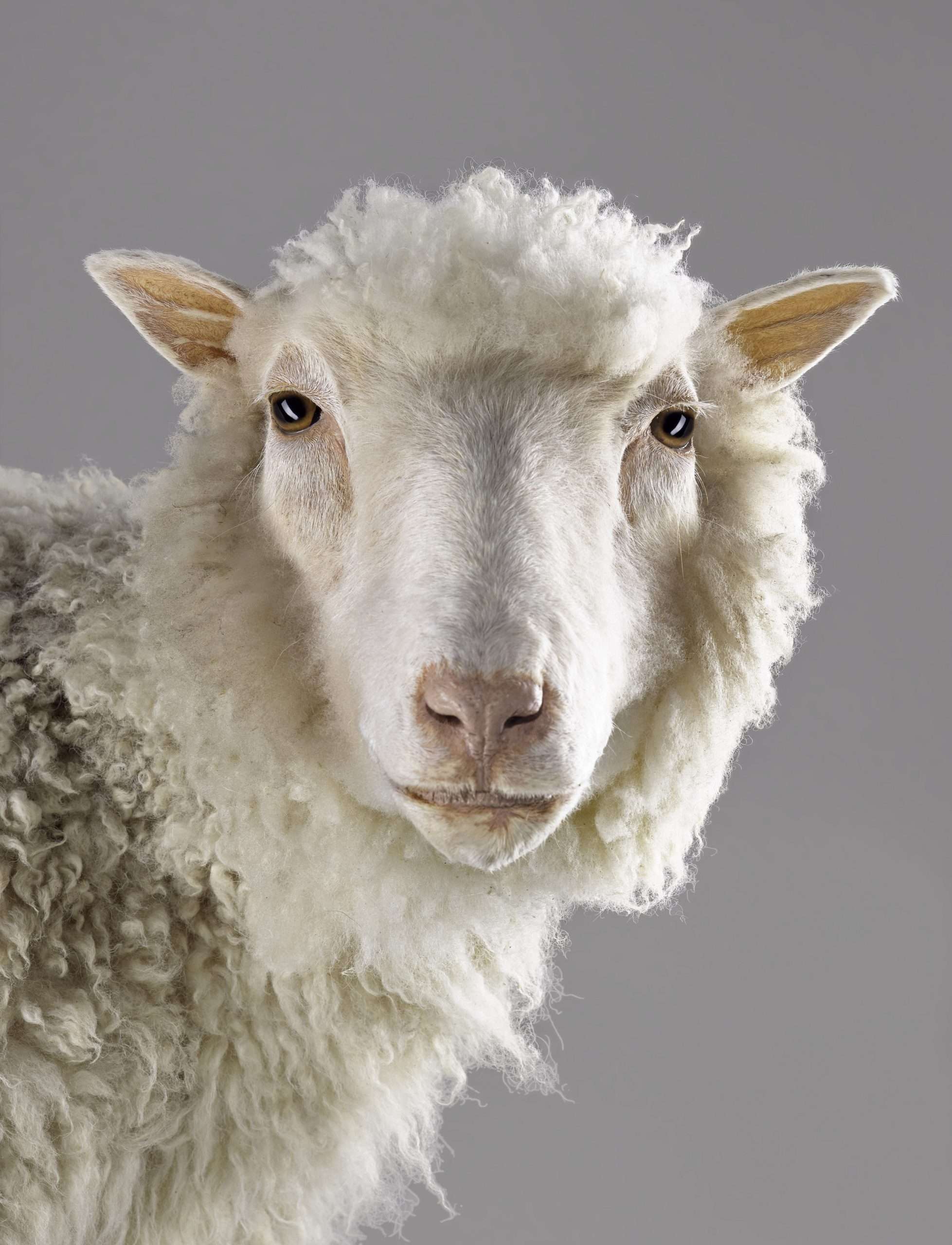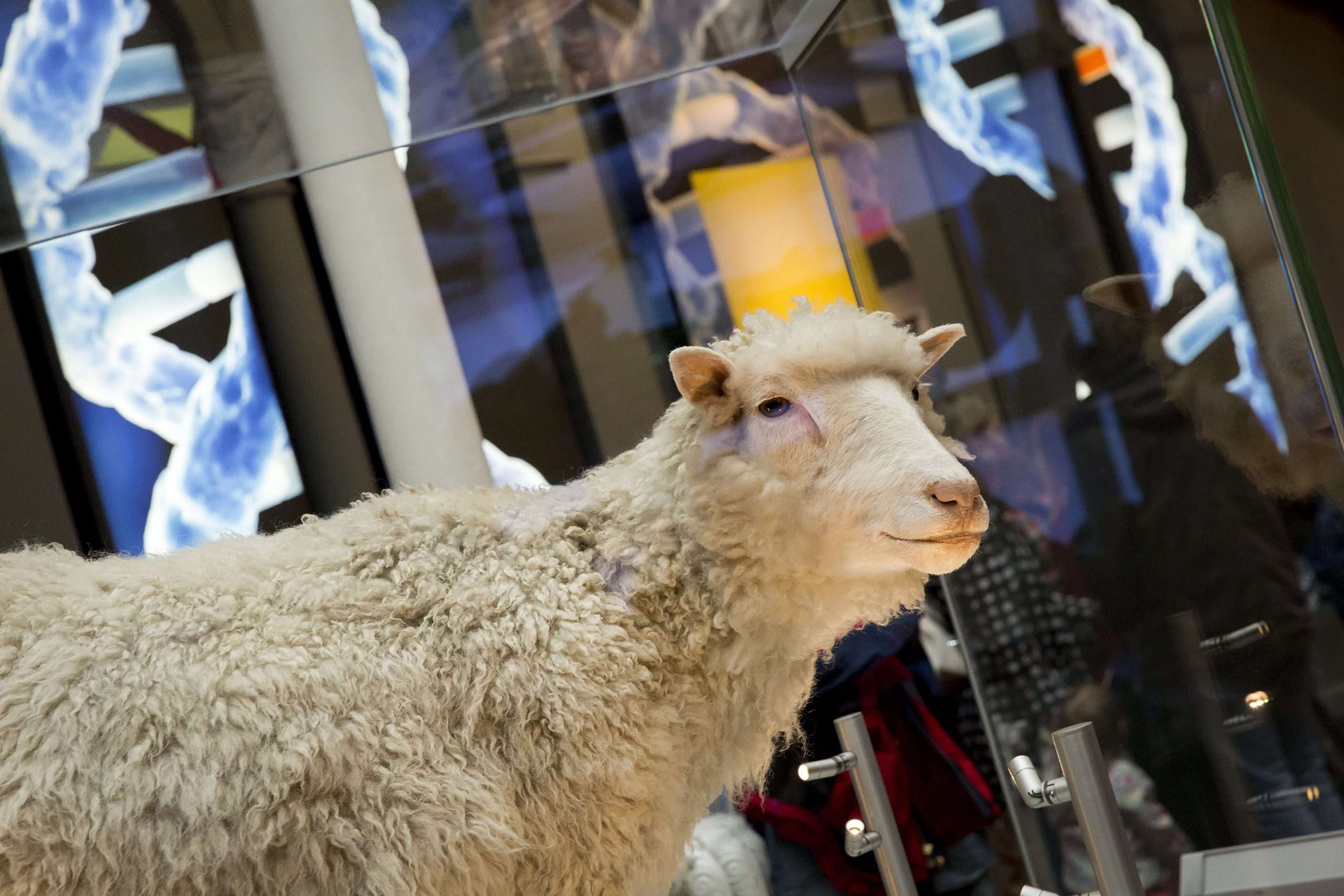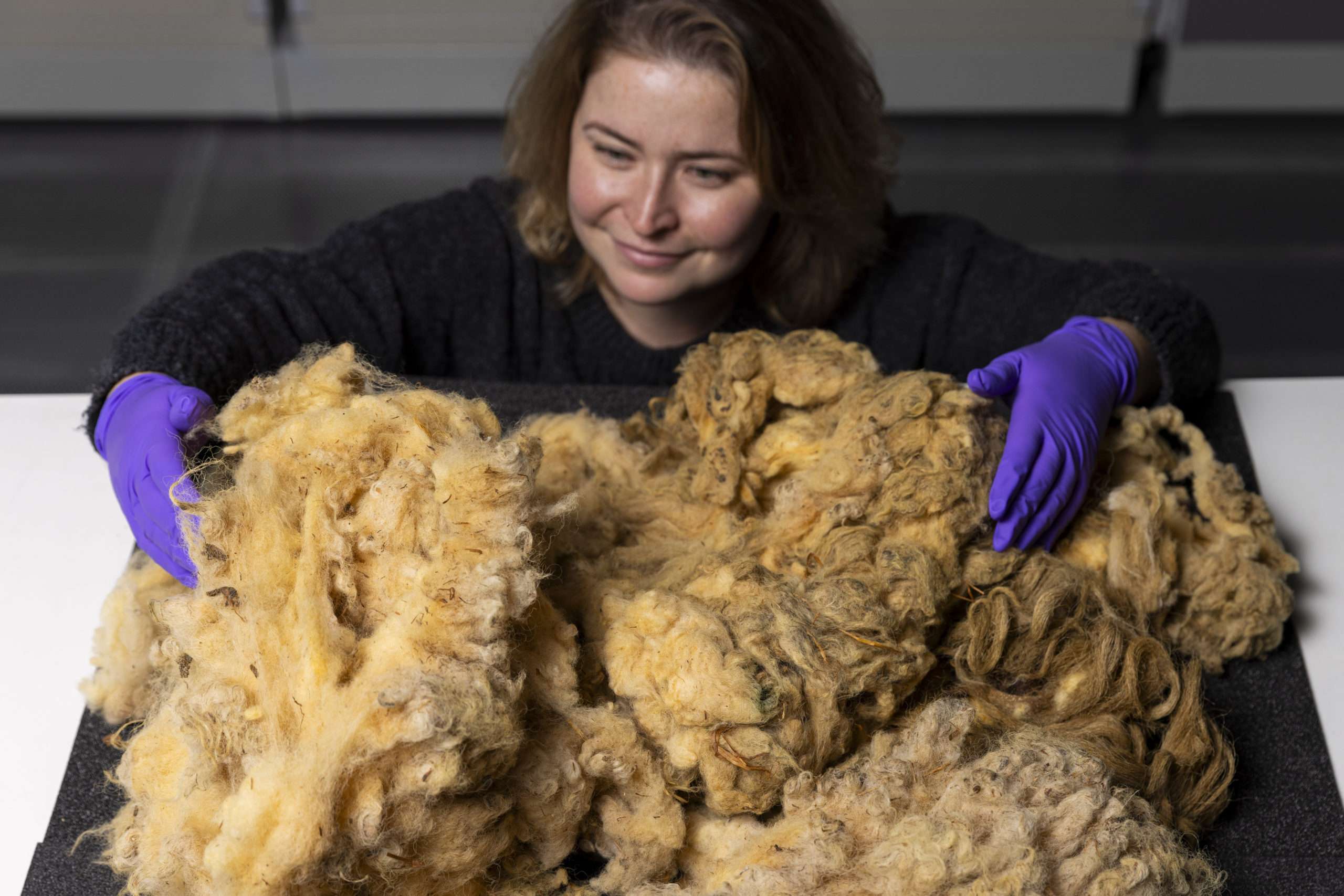National Museums Scotland has acquired a fleece from Dolly the Sheep. The fleece, which recently appeared on the BBC’s Antiques Roadshow, has been donated to the National Collections by Dr William A. Ritchie, the embryologist on the Roslin Institute team that created Dolly, the world’s first mammal cloned from an adult cell. The fleece is from Dolly’s second or third shearing and has been gifted to National Museums Scotland along with scratch-built lab equipment including sharpened glass pipettes, and an electrical fusion machine. The bespoke tools were crucial to the success of the Roslin Institute’s ground breaking cloning procedure.
Sophie Goggins, Senior Curator of Biomedical Science at National Museums Scotland, said: “We are delighted to add Dolly’s fleece and these remarkable instruments to the National Collections, thanks to the generosity of Dr William A. Ritchie. Dolly the Sheep represents one of the most important scientific advances of the 20th century. Her fleece will now be available to researchers ensuring Dolly’s contribution to science continues for generations to come.”
Extraordinary scientific achievement

Dr William A. Ritchie, said: “When Dolly the sheep was introduced to the world the scientific community went wild. The impossible had been achieved, and to make the story even more remarkable, some of the equipment used to produce this breakthrough was handmade in the Roslin institute’s workshop just outside Edinburgh. It is only fitting that the equipment and the fleece are reunited with Dolly in Scotland’s National Collections to add to the story of this extraordinary scientific achievement.”
Following a five-day quarantine in the National Museums Collection Centre freezer, the fleece has joined a range of material associated with Dolly, including her skeleton, death mask and fellow cloned sheep Morag and Megan. In addition to the material on display, National Museums Scotland holds a huge and globally significant collection across many disciplines and subject areas. Open to research, these collections inform and inspire the science of the future.

Dolly the Sheep was born in 1996 at the Roslin Institute just outside Edinburgh. Her birth captured the public imagination and transformed scientific understanding of biology and medicine. Inspired by the adult mammary gland cell used to create her, Dolly was named after Dolly Parton, the country and western singer. She spent her entire life in Roslin where she gave birth to six healthy lambs and died in 2003 aged six. Preserved on a custom-built fibre glass frame, Dolly has been on display at the National Museum of Scotland for almost 20 years and remains one of the museum’s most popular exhibits.
Main photo: Curator Sophie Goggins with Dolly the Sheep fleece. Photo: © Duncan McGlynn.

